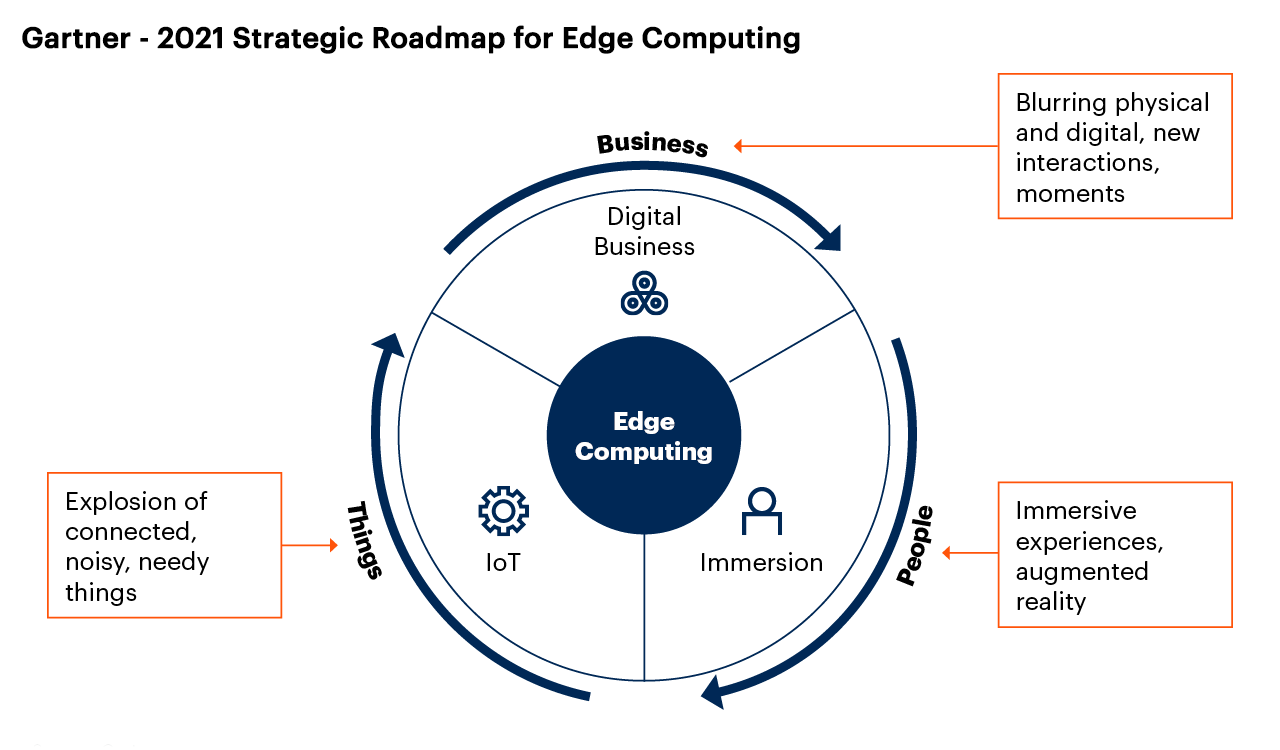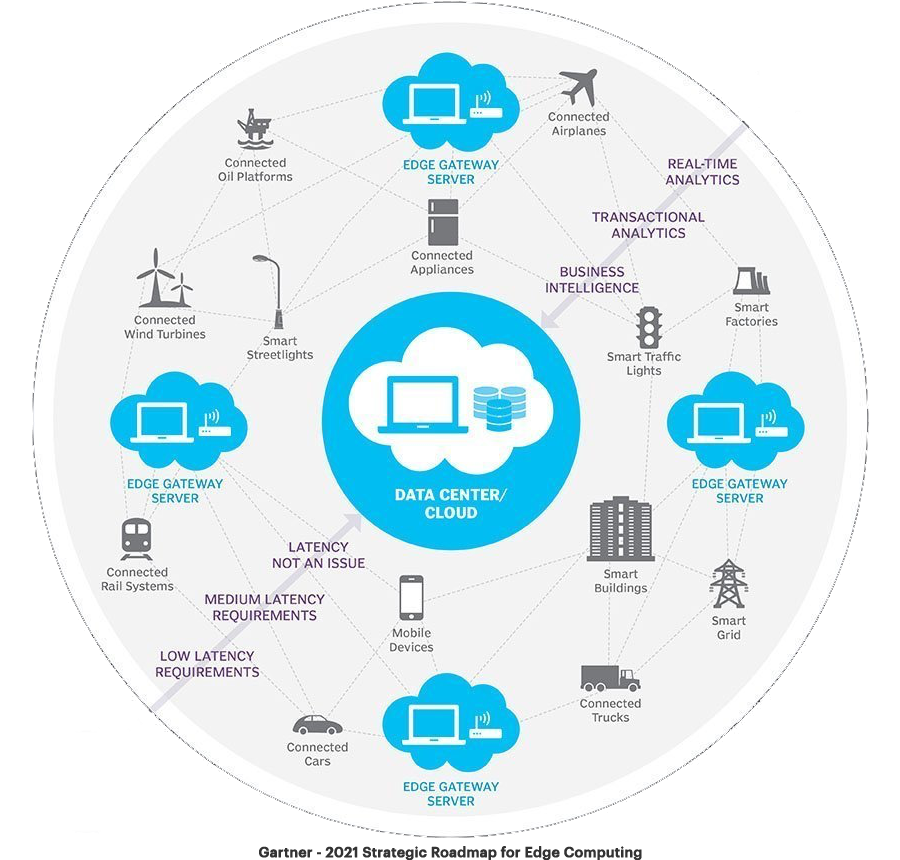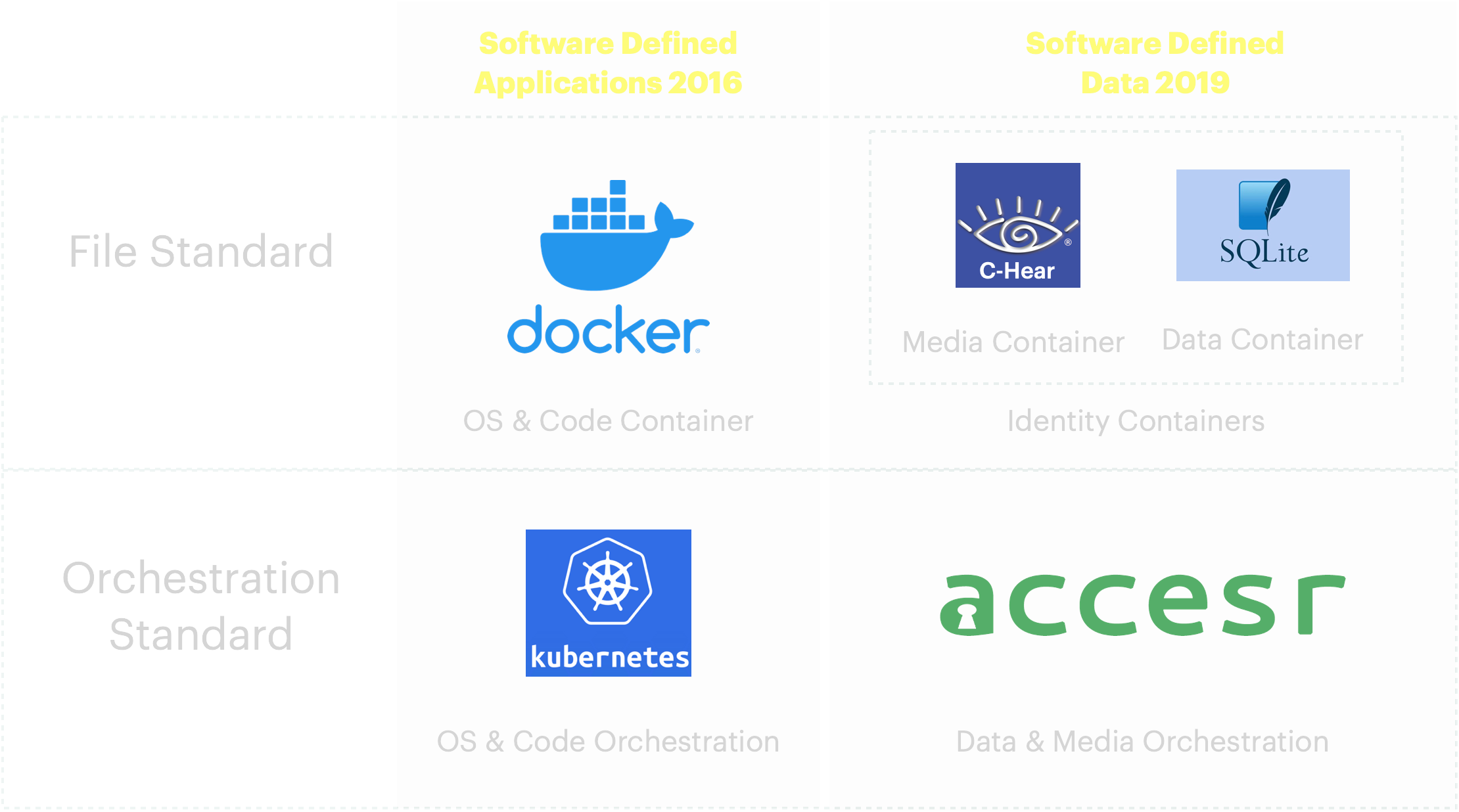Use Cases
Edge Compute & Metaverse
Cloud Computing operates on “Big Data“ while Edge Computing driving the Metaverse operates on “Instant Data” generated by sensors and users in real-time.
Gartner – 2021 Strategic Roadmap for Edge Computing
“Edge Computing exists near the sources of data generation“
Edge Computing SUmmary
The Edge Data Opportunity
Although the topological concept of Edge Computing may be decades old, the limitations imposed by the centralized implementation of Cloud Computing and the growing investment in distributed Internet of Things (IoT) have thrust Edge Computing into the limelight.

Immersive
Edge Computing places content, data, and processing closer to the applications, things, and users to create responsive, immediate, and personalized digital experiences increasingly merging the physical and digital.
Pervasive
It encourages workload placement that optimizes the balance of latency, bandwidth, autonomy, and security across a continuum of options, from cloud data centers to home thermostats to factory assembly lines to vehicles in motion.
Gartner – 2021 Strategic Roadmap for Edge Computing
“Open-Source Frameworks Provide Stability and Standardization for Edge Development”
.The Problem
No Standards or Solutions for Edge Data Security & Automation
The Data Security Problem: No Trust
Edge devices exist outside traditional IT boundaries without physical protection and workload integrity. No standards exist for data protection, detection, and remediation across potentially compromised networks and platforms.
The Data Automation Problem: No Standards
Edge devices and data must interoperate across a growing number of organizations. The Internet of Things (IoT) includes a bewildering array of edge devices and use cases. This growing complexity amplifies security and trust problems.

Billion Devices Today
Billion Devices by 2022
Billion Devices by 2025
The Solution
Smart Data as Edge Security & Automation Standard
Our thinking builds upon Code Containers, called Docker files which ensure application code portability across all cloud platforms.
Kubernetes provides Docker Code Container Lifecycle Orchestration across all compatible clouds coordinating creation, deployment pipeline automation, status monitoring, automated reconfigurations, versioning, and eventual deletion.
On a more granular level, Accesr’s Data Container Lifecycle Orchestration provides unprecedented data control for individual data owners, controlling creation, status monitoring, versioning, deactivation for non-compliance, reactivation for compliance, and finally deleted across all compatible applications and platforms.

Smart Data provides data trust, security, and automation across many applications running across untrusted contested networks.
Use Cases
Smart Data makes Everything Better
The term ‘smart’ originated as an acronym for “Self-Monitoring Analysis and Reporting Technology”. Smart software-defined products are capable of environmental awareness, group intelligence, and can automatically respond to internal and external events. All ‘smart’ devices and sensors can now interoperate, secure data, share data, and orchestrate their collective intelligence.
- Smart Cities and Homes can interoperate with Smart Healthcare to privately and securely improve community health.
- Smart Retail can interoperate with Smart Homes and Smart Industry for just-in-time delivery of goods.
- Smart Transportation can interoperate with Smart Cities and Smart Industries to optimize transportation costs and minimize emissions.
The list is endless…
Smart Homes
Smart Homes monitor and control home attributes such as lighting, climate, entertainment systems, appliances, as well as home security such as access control and alarm systems.
Smart Transport
Smart transportation includes systems such as car navigation, traffic signal control, container management.
A smart transportation network is clean and efficient. Reduced traffic congestion, results in cleaner air, less wasted time, and reduced energy consumption.
Smart Retail
Consumers increasingly expect efficient, safe, and engaging online experiences to be replicated in-store.
Smart retail refers to the hybridization between traditional shopping methods and digital technologies.
Currently, sensors are being used to monitor customer satisfaction, provide supply chain insights, monitor food safety, and track assets.
Smart Industry
Smart Industry is a synonym for Industry 4.0 or industrial transformation in the fourth industrial revolution. Manufacturing, farming, energy production, and supply chain companies, and processes are in full transformation.
Smart Cities
The city is a computer, the streetscape is the interface, you are the cursor, and your smartphone or AR glasses are the input device. This is the user-based, version of the city-as-computer idea.
The Systems version focuses on transit, refuse, power, sanitation, and water to provide more efficient use, resiliency, and emergency response.
Smart Healthcare
Smart healthcare uses technology such as wearable devices, IoT, and mobile internet to dynamically access information, connect healthcare-related people, materials, and institutions.
It actively manages and responds to medical ecosystem needs in an intelligent manner.
What is edge computing – IBM Cloud
In 10 short minutes, understand what Edge Computing does and why it’s foundational to human-centered design of all new digital experiences. Review Edge Computing challenges like the lack of physical security, uniformity, workload protection, threat awareness, and attack response.

Smart Data Protocol
The Protocol that Protects Freedom by Ensuring Humanity Controls Technology
Thomas PainE – Rights of Man 1791
“To secure our own freedom, we must also protect our enemies from oppression”
Join the Ecosystem
Creating the Standard for Digital Rights
We’re focusing on how humanity can control the technology around us by limiting the uses of our data, even after it’s been shared. This requires creating a global standard for attaching and enforcing agreements to our increasingly mobile data.
If the pervasive automation of regulations, policies, licenses, and preferences impacts your organization, we’d enjoy discussing how we can collaborate.
